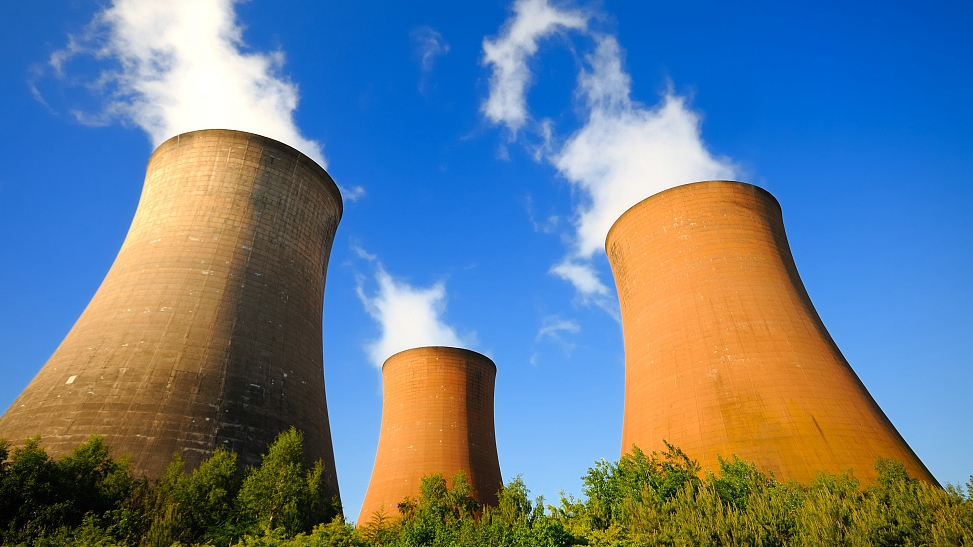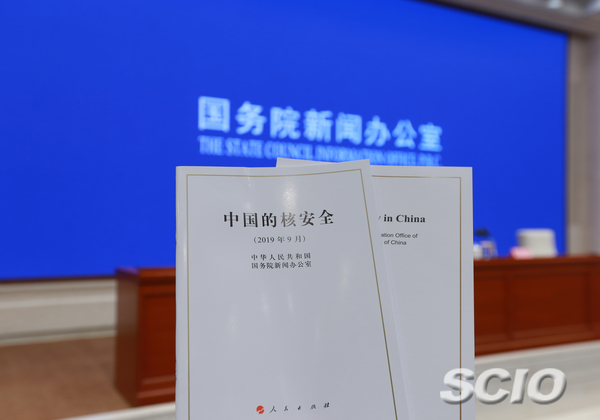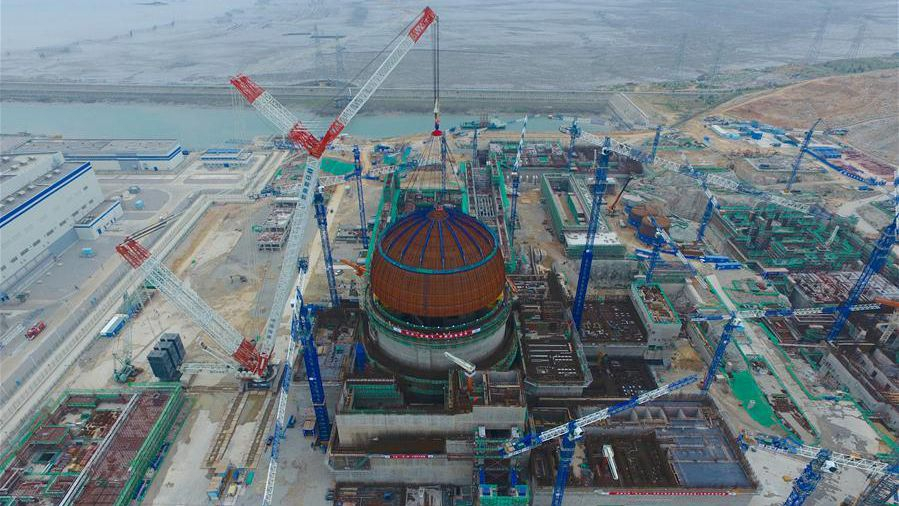

Editor's note: William Jones is the Washington Bureau Chief for Executive Intelligence Review and a non-resident fellow of the Chongyang Institute for Financial Studies, Renmin University of China. The article reflects the author's opinions, and not necessarily the views of CGTN.
On September 3, China issued a new white paper entitled "Nuclear Safety in China" which elaborated on China's basic principles and policies in the field of nuclear security, sharing its concepts and practices of regulation, and clarifying its determination to promote global nuclear safety governance and the actions it has taken to achieve this.
The document also underlined how China's rapid expansion of nuclear energy is part of their program to move toward "clean and efficient energy"and to reduce China's dependence on coal.
China now has 47 nuclear reactors in operation and is planning for 11 more. And there will no doubt be more down the road.
The publication of the white paper, however, also coincides with the major effort that China is making to integrate nuclear energy as a part of its Belt and Road Initiative (BRI), with Chinese-made Hualong-1 reactors now nearing completion in Pakistan.
The white paper underlines this point: "China contributes its wisdom and strength to the world by promoting its nuclear safety regulatory system and sharing advanced technology, experience, resources, and platforms."
The publication of the white paper was a signal to the world that Chinese nuclear technology adheres to the highest security standards in the world today And now that China has developed its own reactor technology, it also intends to make this technology available to other countries, particularly in the developing world.

The white paper titled "Nuclear Safety in China" is released by the State Council Information Office (SCIO), September 3, 2019. /Photo via SCIO
In this way China could contribute mightily to the crying need for cheap and safe energy in the developing world by promoting a nuclear energy-centered trajectory of development for these countries.
With its growing experience in building its own power plants, China is also accruing the expertise that will make it a powerful player on the global scale in the nuclear industry.
But like Huawei and China's development of 5G, China's nuclear industry is also under attack by those in the West who just don't want to see China become a major force in the world arena.
On August 14, the U.S. Commerce Department placed four Chinese nuclear companies on its notorious Entities List, which prohibits the sale of any U.S. goods, software or technology that is subject to control under the U.S. Export Administration regulations.
The Commerce Department claims that the four Chinese entities, including the China General Nuclear Power Group, had engaged in or enabled efforts to acquire advanced U.S. nuclear technology and material for diversion to military uses in China.
These flimsy pretexts mask the real reason the U.S. has initiated these measures against China, and they hearken back to the days in the 1970s when countries like Brazil and Argentina were working to develop their own nuclear industries and their space capabilities and the U.S. government then used the "non-proliferation" argument for what was effectively a policy of technological apartheid, namely, stopping the technological development of these major developing nations.
Since in both Argentina and Brazil, the nuclear energy program was actually run by the military, the "non-proliferation" argument seemed to be credible, unlike the case today with China.

Inside Tianwan nuclear power plant in Lianyungang, east China's Jiangsu Province. /CGTN Photo
So that which had been offered in the 1950s to developing countries under President Eisenhower's Atoms for Peace program was effectively sabotaged during the Nixon and Carter Administrations. The fact of the matter was that the U.S. government simply didn't want countries in "the South" to develop into major players on the world scene.
The balance of power, in which the major Western nations, particularly the Anglo-American crowd, ruled the roost, was not going to be disturbed by any "intruders.” And the same thing is happening now with China.
But none of this really had any long-term effects on Brazil and Argentina. Both countries did develop a nuclear industry in spite of the roadblocks put up by the U.S. during those years. And the same will happen with China.
The fact of the matter is that "technological apartheid" is not very effective. Since the development of new technology is always the result of the human mind finding problems and resolving them, the genie cannot be kept in the bottle forever no matter how hard you try.
But the attack on China's nuclear industry is not only aimed at China. It is also a direct attack on those countries in "the South" who would be the potential beneficiaries of Chinese technology through the BRI.
And don't imagine the United States will take up the "slack" and be building nuclear power plants in Bangladesh or anywhere else any time soon.

File photo: The dome being installed at No. 5 unit of Fuqing Nuclear Power Plant, which used Hualong One technology, in Fuqing, southeast China's Fujian Province, May 25, 2017. /Xinhua Photo
The United States lost its nuclear energy production capability many years ago, a victim of the anti-nuclear lobby in the 1970s and their Zero Growth ideology and to the tremendous short-sightedness of America's political elites, who have adopted the imperial outlook of their Anglo counterparts and left behind those values and principles of equality and even-handedness that once made America a highly respected member of the world community.
(If you want to contribute and have specific expertise, please contact us at opinions@cgtn.com)

Copyright © 2018 CGTN. Beijing ICP prepared NO.16065310-3
Copyright © 2018 CGTN. Beijing ICP prepared NO.16065310-3